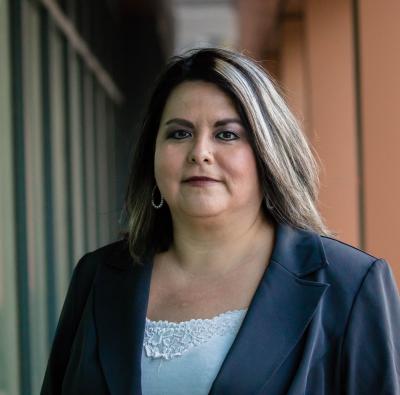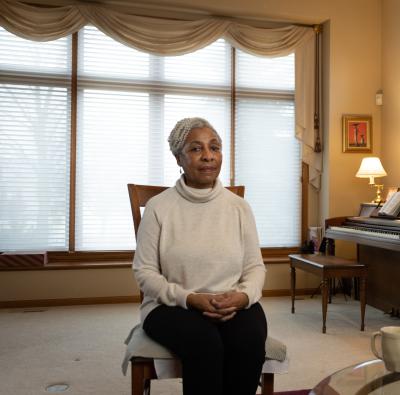It is time to restore and strengthen our freedom to vote by eliminating racial discrimination at the ballot box. Over the past decade, there has been an onslaught of racially targeted attacks against this freedom, which is why we need to enact federal legislation with national standards for voting access.
The U.S. Senate Committee on the...
Members of Congress failing to report their stock trades in a timely manner as required by the Stop Trading on Congressional Knowledge (STOCK) Act has become a widespread problem, undermining voters’ right to know whether their representatives are acting in the public’s interest or for their own financial gain.
Following a review of recent...
A group of U.S. Senators introduced the Freedom to Vote Act, a transformative proposal that would increase Americans’ access to the ballot box, neutralize partisan and racial gerrymandering and increase transparency in our campaign finance system to counteract the impact of secret spending, otherwise known as dark money.
Introduced on Sept. 14...
Efforts in the state of Rhode Island to increase transparency in regard to election spending will remain intact following a ruling out of the U.S. First Circuit Court of Appeals.
Campaign Legal Center (CLC), along with Common Cause Rhode Island and the League of Women Voters of Rhode Island, filed an amicus brief in support of the state.
Among...
A group of U.S. Senators have introduced a new bill, the Freedom to Vote Act, that would increase Americans’ access to the freedom to vote, curb gerrymandering and improve disclosure in our campaign finance system.
The new bill, introduced on Sept. 14, 2021, is the result of negotiations stemming from the original For the People Act, also known as...
Campaign Legal Center (CLC) hosted the virtual event, “Defending Democracy in the Age of Misinformation,” on Jonathan Rauch’s new book, “The Constitution of Knowledge: A Defense of Truth.”
During the course of his conversation with CLC's President Trevor Potter, Rauch, senior fellow, governance studies at the Brookings Institution, shared that...
The Yakima County Board of Commissioners agreed to change the county’s current election system to no longer violate Latino voters’ rights on Aug. 30, 2021. The commission agreed to a court-ordered change under the Washington Voting Rights Act (WVRA) in response to a lawsuit brought by four Yakima County voters and OneAmerica.
The outcome of this...
An anti-transparency bill, S.B. 636, is working its way through the North Carolina House and Senate. If signed into law, this legislation would reduce accountability in the state’s political system by making it easier for wealthy special interests who pass their funds through multiple groups before it is spent on election influence to hide their...
Campaign Legal Center (CLC) has filed an amicus brief in Colorado Union of Taxpayers, Inc. et al v. Griswold et al in support of Colorado voters’ right to know who is spending money to influence their votes in ballot measure elections.
The provisions challenged by Colorado Union of Taxpayers (CUT) give voters in Colorado key information necessary...
Multiple members of Congress, representing both major parties, are dropping the ball (intentionally or otherwise) when it comes to disclosing all of their sources of income. Unfortunately, there are no indications of ethics enforcement to deter this behavior.
With accurate and complete information about a candidate’s sources of income, voters have...
Campaign Legal Center (CLC), Law Forward, Inc. and Stafford Rosenbaum LLP filed suit in the United States District Court for the Western District of Wisconsin on Aug. 23, 2021 on behalf of nonpartisan groups and individual voters challenging Wisconsin’s state legislative map, which the 2020 census has revealed to have unequally populated districts...
The U.S. House of Representatives passed the John Lewis Voting Rights Advancement Act, otherwise known as H.R. 4 or the VRAA, on Aug. 24, 2021, taking a critical step to prevent states from passing voting laws that discriminate against racial minorities.
Now the Senate should follow the House’s lead and pass this bill to protect Americans’ freedom...
By failing to properly disclose over 700 stock trades in the past year, Rep. Diana Harshbarger of Tennessee joins a growing, bipartisan list of elected officials showcasing how the current ethics enforcement system in Congress is simply not working.
Built on a foundation of self-policing in which members of Congress are responsible for enforcing...
On the campaign trail, then-candidate Joe Biden promised a “government [that] works for the people”—not wealthy special interests, lobbyists or big political donors.
After the rampant ethics abuses of the Trump administration, the public expected a quick rebuke through executive action and legislative priorities. Now that we have passed the 200...
On behalf of the League of United Latin American Citizens (LULAC) and its Colorado affiliate, Campaign Legal Center (CLC) filed comments today urging The Colorado Independent Redistricting Commission to redraw its proposed voting maps.
The comments letter raised concerns that the proposed maps would weaken minority voting power in violation of...
U.S. Rep. Terri Sewell introduced the John Lewis Voting Rights Advancement Act, otherwise known as the VRAA or H.R. 4 on Aug. 17, 2021. The Voting Rights Act had a long track record of earning overwhelming bipartisan support.
The House is expected to pass the bill the week of August 23. Then the pressure will be on the Senate to act.
Whatever...
The Pascua Yaqui Tribe, Campaign Legal Center (CLC) and Pima County Recorder’s Office announced a settlement agreement has been reached in Pascua Yaqui Tribe v. Rodriguez on Aug. 16, 2021.
This settlement represents a significant victory for the reservation’s 4,000 residents, ending a long-running dispute stemming from a controversial decision...
Sen. Rand Paul is far from the first member of Congress to violate the Stop Trading on Congressional Knowledge (STOCK) Act, a law created to give voters real time transparency into the financial interests of their elected officials.
So far this year, Campaign Legal Center has filed multiple complaints against members of Congress from both parties...
How does the U.S. Census data release impact the map drawing process that occurs once every 10 years? How do I know if my state is drawing a gerrymandered map? These are all questions being asked this week.
On Aug. 12, 2021, the U.S. Census Bureau released the data from the 2020 census which will be used to redraw voting districts across the...
Campaign Legal Center (CLC) released a report grading states on their 2021 legislative sessions on Aug. 11, 2021. This is the first report to zoom in on how states have changed their vote-by-mail and early voting laws this year, finding that seven states enacted restrictive laws in the first half of the year.
The report uses a 10-point scale to...
There are few provisions of the Federal Election Campaign Act (FECA) that regulate a narrower slice of campaign activity while simultaneously advancing a stronger anti-corruption interest than the post-election loan repayment limit challenged by Sen. Ted Cruz in a case now before the U.S. Supreme Court.
Until about two years ago, when the senator...

